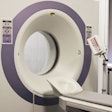To the relief of harried healthcare administrators, the U.S. House of Representatives voted Tuesday night to delay implementation of some provisions of the Health Insurance Portability and Accountability Act of 1996 (HIPAA).
By unanimous voice vote, the House moved to postpone the compliance deadline for HIPAA's transaction and code set rules until October 2003. The vote was 410-0 in favor of the extension, with 23 representatives abstaining.
Tuesday's decision comes on the heels of a similar bill passed by the U.S. Senate (S. 1684) last week. While the Senate version is simpler, it is the House bill, packed with additional reporting requirements, that is expected to prevail.
House members insisted on additional qualifying provisions that were not included in the Senate version, said Tom Gilligan, executive director of the Association for Electronic Health Care Transactions (AEHCT) of Washington, DC.
The House bill includes a stipulation that a covered entity must either comply by the original deadline or submit a detailed compliance plan to U.S. Health and Human Services Department by October 16, 2002. The compliance plan must also explain why the entity is unable to comply with the original deadline, and how it plans to accomplish that goal by October 2003. The organization must also state whether it plans to use the services of a contractor in order to achieve compliance.
According to a statement by sponsors David Hobson (R-OH) and Tom Sawyer (D-OH), the one-time, one-year extension enables the healthcare industry to overcome implementation challenges and realize the savings of administrative simplification without undue, indefinite delay.
"We have worked out a limited and sustainable extension of the original deadlines that allows state governments and healthcare providers additional time and support to upgrade their systems," Hobson said.
The delay is limited to transaction standards and code sets. HIPAA's privacy, security, identifiers, and enforcement provisions would be unaffected.
The one-year extension, while disappointing to some HIPAA advocates, is considered a far better outcome than the indefinite implementation delays that were on the table just a few months ago. Because there are only a couple of weeks left in the current Congressional session, there will be no further compromises in the legislation, Gilligan predicted.
"The Senate will either pass this thing or nothing will happen at all," he told AuntMinnie.com.
Michael Beer, legislative aide to Representative Hobson, said, "We're not going to tell the Senate what to do, but we think in order to move forward, we'd like to see something along the lines of the bill we put together in the House."
The final rule on transactions and code sets was published in the U.S. Federal Register on August 17, 2000. It is widely believed that the rule will lower the cost of radiology by reducing management costs, according to HIPAA expert Samuel Dwyer, Ph.D. from the University of Virginia, who commented on Tuesday's vote in an e-mail to AuntMinnie.com. The extension still leaves plenty of HIPAA work to be done, however.
"One of the issues yet to be resolved is the National Provider Identifier (NPI) and the National Provider File (NPF)," Dwyer wrote.
HIPAA was passed in 1996 in an effort to standardize and simplify the administration of healthcare transactions in the U.S. The bill authorizes $44.2 million for the Secretary of Health and Human Services to adopt additional HIPAA standards and to provide technical assistance, education, and outreach to the healthcare industry. The Department of Health and Human Services estimates that these administrative simplifications will result in net savings (i.e., savings after accounting for implementation costs) of $29.9 billion over ten years.
By Eric BarnesAuntMinnie.com staff writer
December 5, 2001
Related Reading
U.S. Senate delays HIPAA transaction and code set standards, December 4, 2001
A roadmap for implementing HIPAA in radiology, July 26, 2001
RBMA president says it’s time to make HIPAA critical, June 8, 2001
NEMA offers help with privacy and security laws, April 18, 2001
HHS moves to implement and modify HIPAA privacy rules, April 12, 2001
HIMSS embraces HIPAA privacy regulations, April 3, 2001
Copyright © 2001 AuntMinnie.com



















